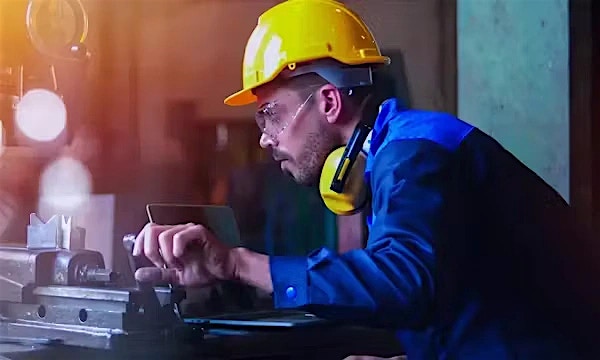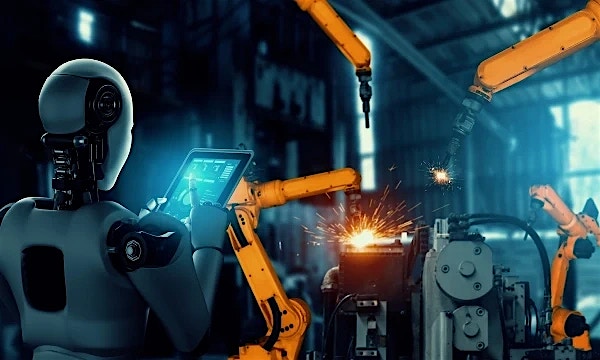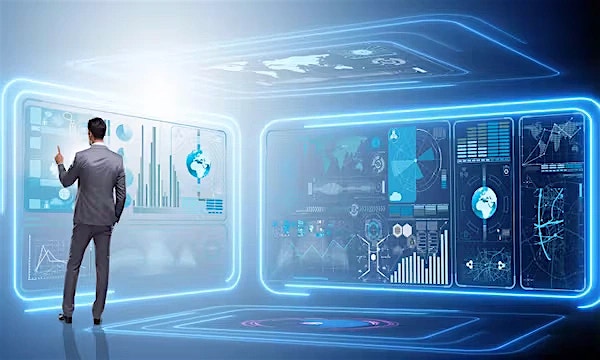You Understand Disruption (and Opportunity)
Supply chain disruptions. Rapid advancement of AI, automation and Industry 4.0. Growing inflation, cost pressures and cybersecurity threats.
As a manufacturing company, not only do you have a responsibility to understand what is happening within your four factory walls, you also need visibility into technology trends, industry dynamics, geo-politics, weather, commodity prices and more.
Transform your business and develop a hyperconnected manufacturing enterprise that enhances productivity, quality and innovation in a sustainable, profitable way that is ready for whatever challenges the future may hold.

Solutions Designed and Built by Manufacturing Technology Experts
Our MVision framework allows you to adopt and deploy solutions across your entire value chain. MVision Nucleus sits at its core and includes five purpose-built flagship solutions that extend the capabilities to meet the unique needs of your manufacturing business.
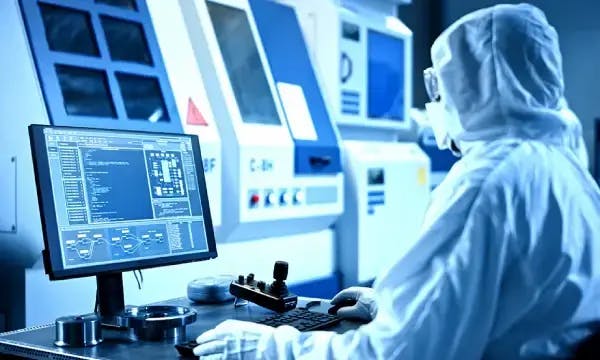
Embrace Industry 4.0
Benefit from unprecedented levels of digital adoption and implement manufacturing transformations to become an AI- and data-driven organization. Transform your technology landscape with a smart supply chain, smart workforce and smart products and services.
The MVision Nucleus leverages accelerated services across various technologies, including automation, AR and VR, AI and ML, IT/OT integration, Digital Workplace solutions and UX/UI services to help you adopt and align to Industry 4.0.

Transform people, processes and culture
Define new digital processes, operating models and strategies to enhance customer, partner and employee experiences.
Get advisory and expertise where needed to build technology solutions that drive your business transformation by rationalizing, simplifying and automating business processes. Institutionalize change programs with a focus on agility and future-readiness with MVision for Business.
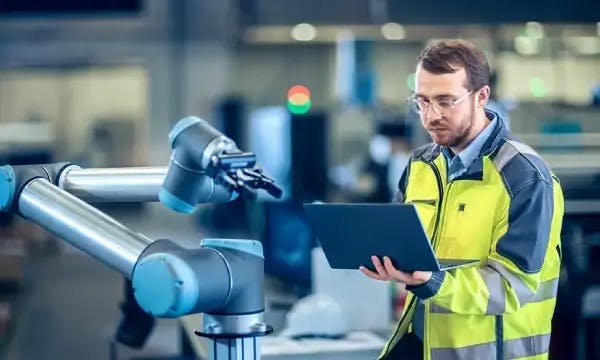
Automate to enhance quality and reduce costs
Automate your business and IT processes with AI and automation to reduce operating costs and improve quality and service levels.
MVision for Operations allows you to focus on modernization and building a leaner as-a-service model to significantly reduce costs with predictable service and quality levels.

Become an insights-driven organization
Adapt and respond to security risks, your tech debt, application landscape, cloud integration and data accessibility challenges. Create digital roadmaps and adopt new GenAI for business excellence.
MVision for Digital builds on the MVision Nucleus framework, adding strategic digital planning, consulting, cybersecurity, scalability, governance and robust program management to meet the unique needs of your manufacturing enterprise.
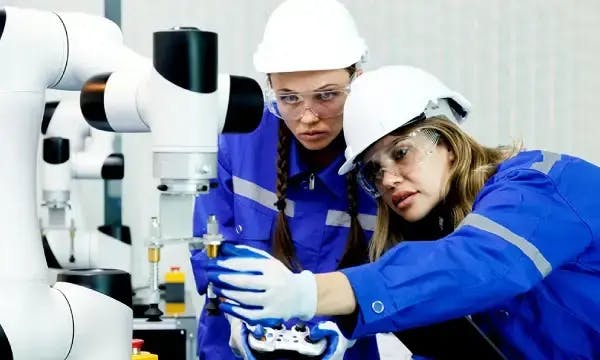
Engineer for the future
Accelerate your product development by leveraging the latest technologies, monetizing product services and providing immersive customer experiences by leveraging our R&D centers around the world, built upon our decades of product engineering expertise.
MVision for Engineering can hyper automate your processes in design, manufacturing, supply chain and the aftermarket with a vision for autonomous factories and a fully connected ecosystem.
We think these topics might interest you
Preparing Manufacturing Companies for the Future for Over Four Decades
With more than 40 years of experience, HCLTech has helped our manufacturing clients transform their traditional business processes into next-gen operations powered by data-driven insights for stable profitability and future-ready scalability.
Our proprietary framework, MVision, is purpose-built to help manufacturing companies deploy cutting-edge solutions to innovate while improving the bottom line and creating opportunities to increase revenue.
Decades of delivering advanced manufacturing solutions
Process manufacturing organizations are our clients
Industrial manufacturing organizations are our clients
Automotive OEMs are our clients
Success Stories Highlighting Our Impact on Our Manufacturing Clients
Discover more about how HCLTech has helped clients just like you.
Making a Name Among Analysts
2022-2023 Avasant RadarView™ — Manufacturing Digital Services
HCLTech positioned as a Leader by Avasant
Learn more2023 IDC MarketScape: Worldwide Manufacturing Intelligence Transformation Strategic Consulting Vendor Assessment
HCLTech positioned as a Leader by IDC
Learn more2023 IDC MarketScape: Worldwide Manufacturing Intelligence Transformation Vendor Assessment
HCLTech positioned as a Leader by IDC
Learn moreMVision helps elevate HCLTech’s competitive positioning in the sector
Learn moreManufacturing Customer Testimonials
Explore Our Latest Insights into Manufacturing


Move Fast. Move Better. Partner with HCLTech.
Take your enterprise to the next level with our manufacturing industry solutions.






